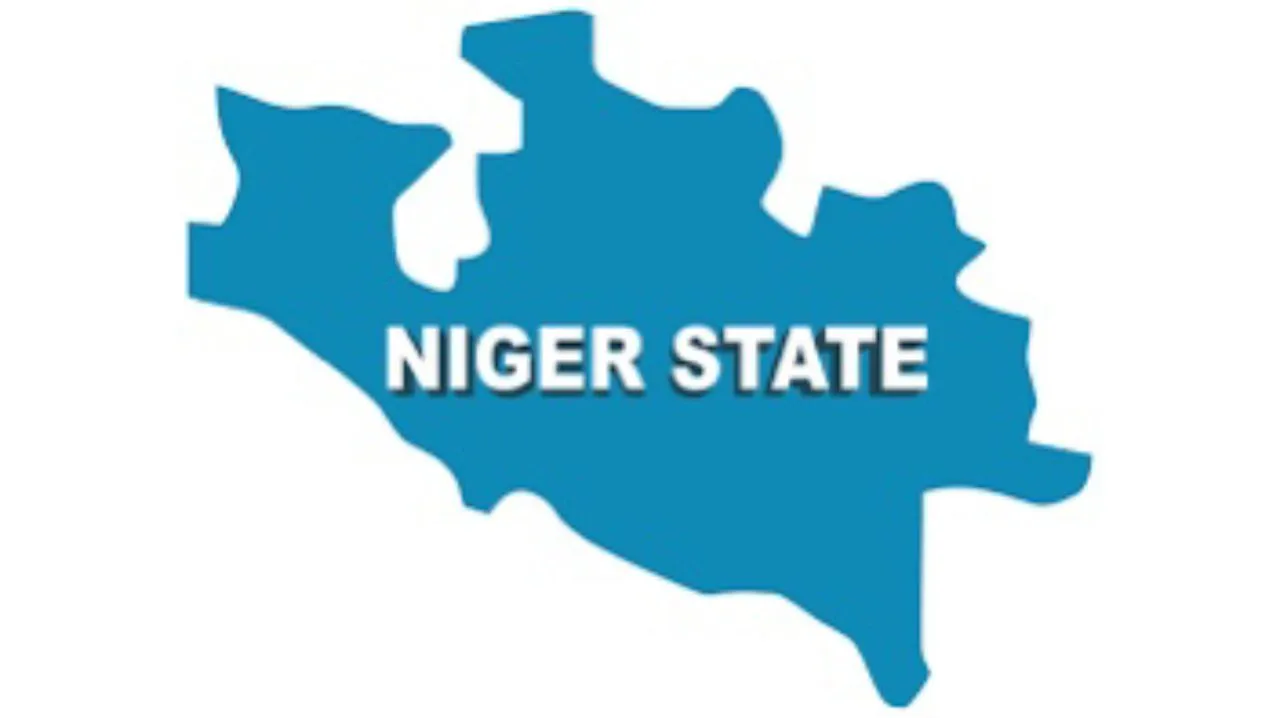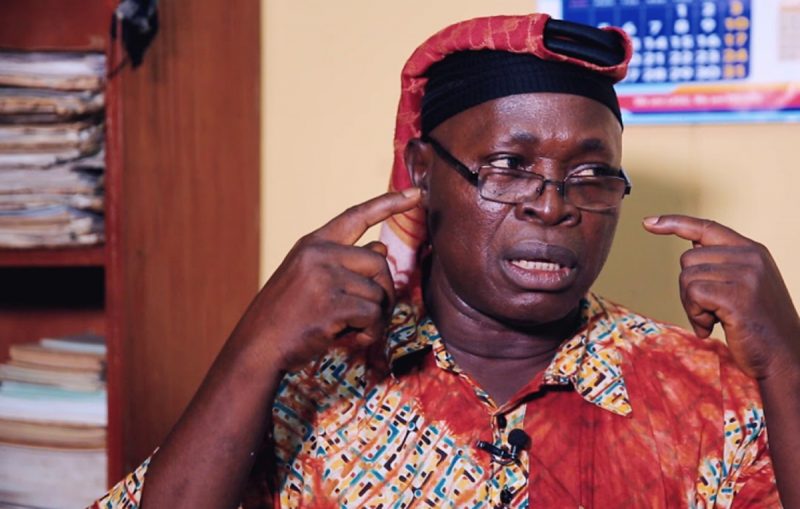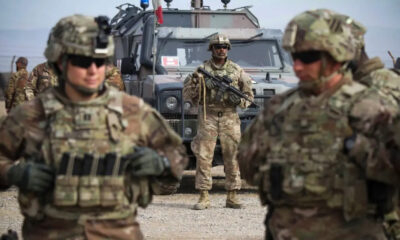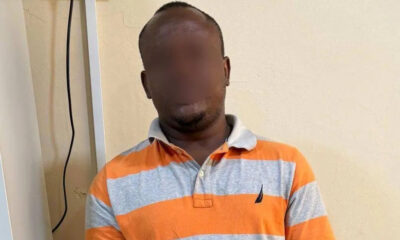metro
Fed Govt scouts for assets of Boko Haram sponsors

The federal government has launched a massive search and freeze campaign for all assets of 13 alleged ‘Boko Haram’ sponsors who have been added to Nigeria’s blacklist of terrorists and terrorism sponsors.
A circular obtained yesterday indicated that the coordinated search for the assets of the 13 alleged sponsors of Boko Haram was sequel to their indictment and addition of their names to the Nigeria Sanctions List, a masterlist of all persons and institutions blacklisted for terrorism.
The Nigeria Sanctions List is under the supervision of the Nigeria Sanctions Committee, a multi-agency committee created by the Terrorism (Prevention and Prohibition) Act 2022.
The search and freeze campaign involved all national enforcement agencies and the regulated private sector entities with specific mandate to immediately track, discover and freeze all funds, physical and financial assets, businesses, organisations and all other related entities to the 13 alleged Boko Haram sponsors.
Acting in concert with the Nigeria Financial Intelligence Unit (NFIU), the coordinating secretariat of the Nigeria Sanctions Committee, Nigeria’s apex capital market regulator, Securities and Exchange Commission (SEC) yesterday directed all capital market operators to immediately search for and freeze all assets in the names of the 13 alleged Boko Haram sponsors.
READ ALSO:
- Niger Delta Ministry Has No Business In Abuja – Atiku
- NYSC Rejects UI, UNN Graduates From Orientation Camps
- ‘We no dey give shishi’, Keyamo mocks Obidients fighting over money
The blacklisted alleged terrorism sponsors included 10 individuals and three entities. These include Abdurrahaman Musa Ado, Bashir Ali Yusuf, Ibrahim Ali Alhassan, Muhammad Ibrahim Isah, Salihu Yusuf Adamu, Surajo Abubakar Mohammad, Fannami Alhaji Bukar, Muhammed Musa, Sahabi Ismail, Mohammed Saleh Buba, Alin Yar Yaya General Enterprises, Are Nigeria Limited and Suhailah Bashir General Enterprises.
The general use of “all capital market operators” and “stakeholders” virtually included all finance, investment and estate development professionals and businesses in Nigeria as well as all public and private businesses.
The list of capital market operators include banks, insurance firms, stockbroking firms, registrars, fund management firms, solicitors, accountants, auditors, issuing houses, venture capital, estate valuers and surveyors and commodities and securities exchanges among others.
The directive also required all operators and stakeholders to report to the Secretariat of the Nigeria Sanctions Committee, any assets frozen or actions taken in compliance with the designation, including attempted transactions.
The search and freeze campaign also mandated all operators and stakeholders to “immediately file a suspicious transactions report to the NFIU for further analysis on the financial activities of such an individual or entity; and report as a suspicious transactions report to the NFIU, all cases of name matching in financial transactions prior to or after receipt of the Nigerian Sanctions List”.
The directive subsequently prohibits “dealings with the designated persons and entities and to continue to check for transactions relating to the designated person or entity and the actions to be taken if funds or other assets or suspect transactions are discovered”.
READ ALSO:
- ‘Troops neutralise notorious bandit commander ‘Dogo Maikasuwa’ in Kaduna’
- Lagos, Port Harcourt likely to witness ‘weather catastrophe’ – FG
- Ukraine: We will not negotiate with war criminals
According to the search and freeze campaign directive, the freezing obligation extends to “all funds or other assets that are owned or controlled by the designated person or entity, and not just those that can be tied to a particular act, plot, or threat of terrorism or terrorism financing; those funds or other assets that are wholly or jointly owned or controlled, directly or indirectly, by designated persons or entities; the funds or other assets derived or generated from funds or other assets owned or controlled directly or indirectly by designated persons or entities; and funds or other assets of persons and entities acting on behalf of, or at the direction of designated persons or entities”.
The circular noted that the asset freezing mechanism is a preventive tool to disrupt terrorist support, stressing that “it is incumbent on financial institutions and designated non-financial businesses and professions to comply with the asset freezing obligations, giving the potential of both criminal and civil liabilities for non-compliance, as well as the reputational risks for financial institutions and DNFBPs of being seen to be in breach of the asset freezing mechanism”.
The interdiction also included total travel ban and arm embargo on all the designated persons, a directive being implemented by another inter-agency group, according to a source in the know of the proceedings.
The first six alleged sponsors of Boko Haram and the three enterprises had been tried and convicted by the Abu Dhabi Federal Court of Appeal severally for collaborating with the terrorist group Boko Haram terrorist group of Nigeria by collecting money in Dubai and sending it to the group in Nigeria as well as providing sundry acts to aid terrorism.
The other four designated persons- Fannami Alhaji Bukar, Muhammed Musa, Sahabi Ismail and Mohammed Saleh Buba, who were believed to have been seized in Nigeria, were interdicted for being members of Boko Haram terrorist group, terrorism financing, received training, rendering support to the terrorist group, concealment of information, attending terrorist meeting and provision of facility in support of terrorist acts.
The Nation
metro
26 Killed as Bandits Attack Niger Communities, Burn Police Station, Homes

26 Killed as Bandits Attack Niger Communities, Burn Police Station, Homes
A fresh bandit attack in Borgu Local Government Area, Niger State, has left at least 26 people dead, destroyed homes, looted shops, and burnt down a police station, heightening fears in communities already plagued by insecurity. The raid targeted Tungan Makeri and Nkpaso communities in Konkoso ward during the early hours of Saturday, with gunmen reportedly moving house to house in a coordinated assault.
Eyewitnesses said the attackers, believed to number over 200 heavily armed men, executed some victims after tying their hands behind their backs. Seven of the deceased were reportedly slaughtered outright, while others were shot. Survivors fled in panic, leaving behind belongings, homes, and shops as the assailants razed property in their path.
The bandits also burnt down the police station at Konkoso, forcing officers on duty to flee. Although no weapons were reportedly taken, the destruction of the security post underscores the attackers’ dominance during the raid. Local sources suggest the assault may have been retaliatory, targeting communities that recently petitioned the federal government for a military base to curb escalating attacks.
READ ALSO:
- ‘Anti-Muslim Timetable’: MURIC Slams INEC Over 2027 Elections
- Boko Haram Terrorists Release Video of 176 Abducted Kwara Residents
- Troops Neutralise Scores of Terrorists, Recover Arms in Yobe
A community insider explained that the attackers told residents the government could not protect them and warned of further raids. Those killed were reportedly among the villagers advocating for federal intervention, sending a chilling warning to others.
This attack follows a Save-Our-Soul (SOS) appeal made last week by political and traditional leaders in Borgu and Agwara Local Government Areas, requesting the federal government urgently deploy troops and establish a military base. Leaders described the security situation as “worrisome and scary,” with the entire Borgu Kingdom under siege from bandits and criminals over the past three months.
Most Rev. Dr. Bulus Dauwa Yohanna, the Chairman of the Christian Association of Nigeria (CAN) Niger State chapter and Catholic Bishop of Kontagora Diocese, noted that residents now live in constant fear, unable to farm, trade, or carry out daily activities safely. He called for urgent government intervention to restore peace.
As of the time of reporting, neither the Niger State Government nor the state police command has issued an official response to the attack. Security experts warn that the latest raid underscores the escalating security crisis in Niger State and North-Central Nigeria, calling for swift military reinforcement, better intelligence deployment, and protection of vulnerable communities.
26 Killed as Bandits Attack Niger Communities, Burn Police Station, Homes
metro
‘Anti-Muslim Timetable’: MURIC Slams INEC Over 2027 Elections

‘Anti-Muslim Timetable’: MURIC Slams INEC Over 2027 Elections
The Muslim Rights Concern (MURIC) has rejected the 2027 election timetable released by the Independent National Electoral Commission (INEC), accusing the commission of acting as if there are no Muslims in Nigeria by fixing major election dates within the holy month of Ramadan.
In a statement issued on 14 February 2026, MURIC’s Executive Director, Professor Ishaq Akintola, described the timetable as exclusive, insensitive and provocative, warning that it could disenfranchise millions of Muslim voters across the country.
According to the schedule announced in Abuja on 13 February 2026 by INEC Chairman, Professor Joash Amupitan, the presidential and National Assembly elections are slated for 20 February 2027, while governorship and state assembly elections are fixed for 6 March 2027. MURIC noted that Ramadan is projected to begin around 8 February and end about 10 March 2027, meaning all major elections would take place during the fasting period.
The organisation argued that holding elections during Ramadan would impose severe hardship on Muslim voters, electoral officials, ad hoc staff and security personnel who would be fasting while participating in a physically demanding national exercise. According to MURIC, this could lead to fatigue, reduced voter turnout and heightened tension at polling units.
READ ALSO:
- Boko Haram Terrorists Release Video of 176 Abducted Kwara Residents
- Troops Neutralise Scores of Terrorists, Recover Arms in Yobe
- Woman Arrested Over Murder of Nigerian E-Hailing Driver in South Africa
MURIC further accused INEC of failing to consider Nigeria’s religious diversity, questioning whether Muslim staff or commissioners were consulted during the drafting of the timetable. The group said proper consultation with past INEC chairmen would have highlighted the need to avoid scheduling elections during major national or religious events.
The group warned that the implications of the timetable go beyond inconvenience, alleging that it amounts to religious discrimination and an attempt to alienate and disenfranchise Nigerian Muslims. It also expressed concern that fasting security personnel and election workers could face excessive stress during early-morning deployments and long election hours.
Professor Akintola added that continued disregard for Muslim concerns could fuel anger among youths, warning that frustration may escalate if the timetable is not reviewed. He maintained that the election calendar gives the impression that Muslim opinions no longer matter in government decision-making.
As of the time of filing this report, INEC has not responded to MURIC’s claims or indicated whether it plans to review the 2027 election timetable. The development has sparked debate nationwide, with growing calls for inclusive and sensitive election planning in a multi-religious society like Nigeria.
‘Anti-Muslim Timetable’: MURIC Slams INEC Over 2027 Elections
metro
Boko Haram Terrorists Release Video of 176 Abducted Kwara Residents

Boko Haram Terrorists Release Video of 176 Abducted Kwara Residents
Suspected members of Boko Haram, formally known as Jama’atu Ahlissunnah Lidda’awati wal-Jihad, have circulated a video showing 176 abducted residents allegedly taken from Woro community in Kaiama Local Government Area of Kwara State.
The disturbing footage, which has since sparked outrage and fear across the state, reportedly shows dozens of women and children seated in rows in an open area, surrounded by armed men. Among them were a nursing mother and several minors. Some of the children appeared half-clothed, while many of the captives looked visibly distressed, suggesting harsh conditions in captivity.
In the video, one of the armed men interrogates the captives, asking where they were abducted. Responding in Hausa, three women — including a nursing mother — stated that they were kidnapped from Woro community in Kaiama LGA.
During the recording, the terrorist accused the Kwara State Government of downplaying the scale of the abduction. According to him, while officials reportedly claimed that between 20 and 30 persons were kidnapped, the group insisted it was holding 176 victims.
“The Kwara State government lied to Nigeria and to the whole world,” the gunman alleged in the footage.
READ ALSO:
- Troops Neutralise Scores of Terrorists, Recover Arms in Yobe
- Woman Arrested Over Murder of Nigerian E-Hailing Driver in South Africa
- Fubara Chooses Peace, Dedicates “Man of the Year” Award to Wike
As of the time of this report, the Kwara State Government has not publicly confirmed the number of persons abducted from Woro community nor officially responded to the claims made in the video.
Background to the Attack
The video emerged weeks after a deadly attack on Woro community on February 4, 2026, when suspected terrorists stormed the area in a coordinated assault. Local sources reported that several residents were killed during the invasion, including family members of the Emir of Woro, the Chief Imam, and education officials.
The traditional ruler, Alhaji Saliu Bio Umar, was reported missing following the attack, fuelling concerns that he may have been abducted during the raid. The assailants reportedly attacked both residents and travellers passing through the community, killing indiscriminately before retreating.
Security analysts have linked the attackers to extremist elements believed to have operational ties across the Sahel region, raising concerns about the possible expansion of insurgent networks into parts of North-Central Nigeria previously considered relatively stable.
Rising Security Concerns in Kwara
The incident has heightened anxiety across Kaiama LGA and surrounding districts, particularly in Kwara North, where residents say rural communities remain vulnerable due to limited security presence and difficult terrain.
While security agencies have reportedly intensified surveillance and deployment in affected areas, there has been no official statement confirming rescue operations or negotiations regarding the abducted victims.
Community leaders have called on the Federal Government and security forces to urgently intervene to secure the safe release of the captives and prevent further attacks.
The emergence of the video has once again drawn national attention to the evolving security challenges in Kwara State and the need for coordinated efforts to curb the spread of extremist violence beyond the North-East region.
Boko Haram Terrorists Release Video of 176 Abducted Kwara Residents
-

 metro2 days ago
metro2 days agoIKEDC Sets Feb 20 Deadline for Customers to Submit Valid IDs or Face Disconnection
-

 Education2 days ago
Education2 days agoSupreme Court Affirms Muslim Students’ Right to Worship at Rivers State University
-

 metro2 days ago
metro2 days agoLagos Police Launch Manhunt for Suspect in Brutal Ajah Murder
-

 News2 days ago
News2 days agoAso Rock Goes Solar as Tinubu Orders National Grid Disconnection
-

 Business2 days ago
Business2 days agoNaira Could Trade Below ₦1,000/$ With Dangote Refinery at Full Capacity — Otedola
-

 metro2 days ago
metro2 days agoArmy University Professor Dies in Boko Haram Captivity After Nearly One Year
-

 International2 days ago
International2 days agoTrump Halts Minnesota Immigration Crackdown After Fatal Shootings, Protests
-

 Politics3 days ago
Politics3 days agoCity Boy Movement Receives Bus Donations from Zenco, Obi Cubana for Tinubu’s Campaign













